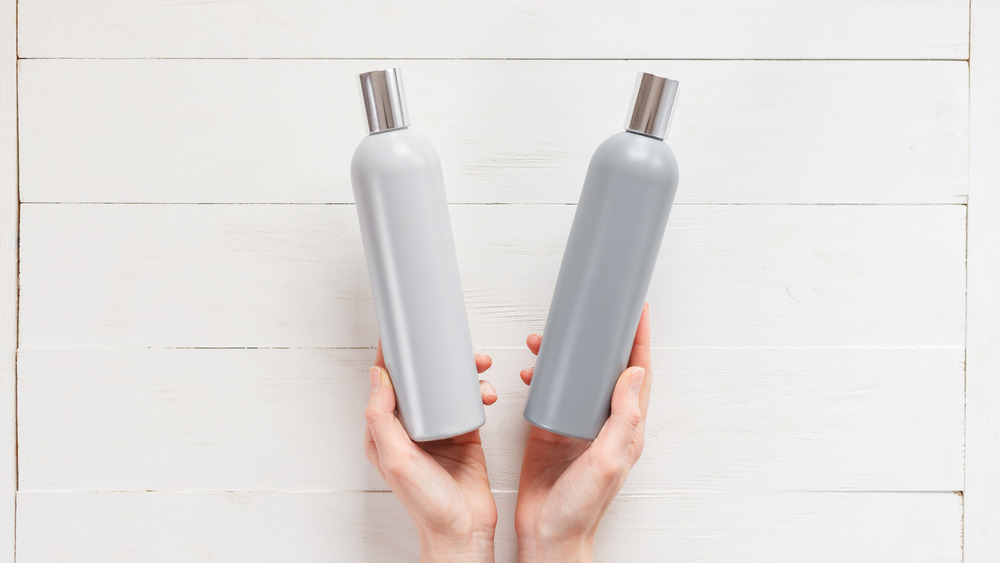The One Ingredient That Shouldn't Be In Your Shampoo
Shampooing your hair while inhaling an intoxicating scent makes the shower experience a relaxing oasis, and counts as one of life's simple but sweet pleasures. But could that scented experience actually be hurting you?
Out of all the shampoo ingredients that typically make the "bad" list — sulfates, parabens, formaldehyde, and more — fragrance should be at the top of the list. With other chemical additives, at least you can read the ingredient list and know what you're getting. With the generic term '"fragrance," — because scent formulas are classified by the FDA as trade secrets and therefore their ingredient lists do not need to be disclosed to consumers — you can't know.
Jana Blankenship, founder of the natural hair care line Captain Blankenship and author of Wild Beauty, told Best Life, "The word 'fragrance' on an ingredient list can contain a Pandora's box of synthetic chemicals. Scents are proprietary and classified as trade secrets in the United States, so personal care and perfume companies do not have to disclose the hundreds or even thousands of unregulated chemicals that comprise their recipes."
Naturally-sourced scents are generally safe in shampoos
Unfortunately, many of the chemicals used to make that sudsy lather so sweet-smelling could be toxic. Jolene Caufield, senior advisor specializing in healthy living, wellness, and healthcare at Healthy Howard MD, explains to Best Life that, "The lovely smell in every bottle is a blend of a variety of toxic ingredients such as phthalates that are linked to reproductive and developmental damage. And all in all, synthetic fragrances are known to be carcinogenic and are linked to hormone disruption."
Also, for individuals with sensitive skin, synthetic fragrance blends can also cause skin irritation, inflammation, and even hair loss (via Lord Hair). Although we wouldn't normally connect shampoo fragrance and scalp health, it's time to make the connection.
If the thought of a fragrance-free shampooing experience leaves you unenthused, take heart. Naturally-sourced fragrances, like those from essential oils, are generally safe to use. Not only that, but shampoo companies, in an effort to attract health-conscious consumers, often boldly advertise natural scents on their labels. Ghanima Abdullah, cosmetologist and hair expert for The Right Hairstyles, told Best Life, "So if the fragrance comes from a natural essence, it will be listed on the ingredients by its actual name — orange peel oil, for instance. Unless it says 'natural fragrance,' the fragrance is made of one or more chemical compounds."


